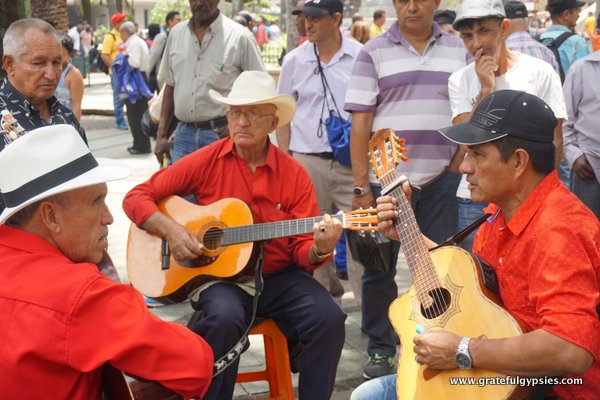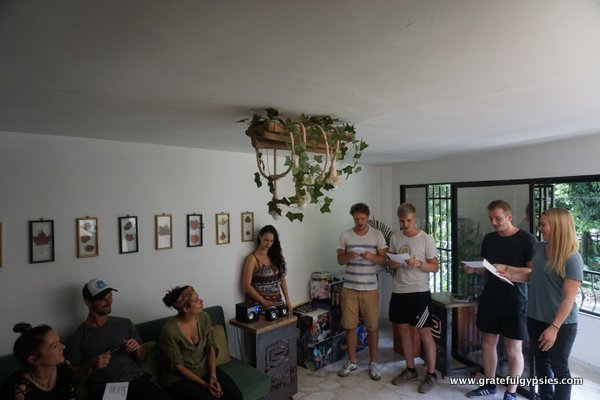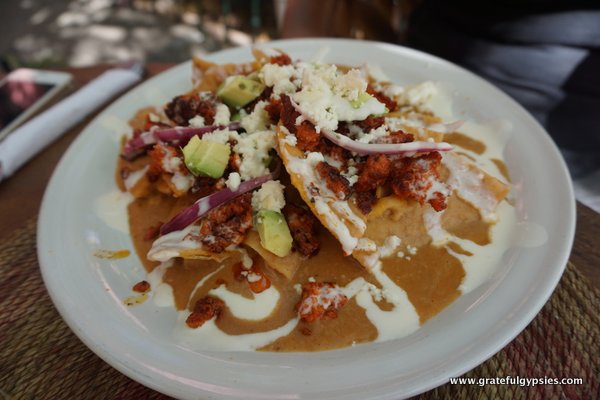Spanish Power Verbs – Poder Posted by sasha on Jun 12, 2019 in Spanish Grammar, Spanish Vocabulary
If you’re a beginner with learning Spanish, a good strategy is to master some power verbs. These are verbs that are used very frequently in daily life, such as necesitar (to need), querer (to want), and gustar (to like). Today we’re going to look at another Spanish power verb – poder (can/be able to).
Conjugation in Simple Present
To keep it simple, I’m going to stick with the simple present tense for this post. This post is aimed at beginners who are trying to build confidence to speak in Spanish. If you’re a more advanced learner, you can find plenty of posts on here that go into more advanced grammar. Here’s the simple present conjugation for the verb poder:
Tú puedes
Usted puede
Él puede
Ella puede
Nosotros podemos
Ustedes pueden
Ellos/ellas pueden
You can (familiar)
You can (formal)
He can
She can
We can
You can (plural)
They can
Looking at the conjugation, you probably noticed that the spelling of the root verb changes for all forms except for “we can.” Also, remember that yo, tú, and nosotros are all implied, so you don’t really need to say the pronouns. For example, you can just say “Puedo” to mean “I can.”
For those of you studying Spanish to go to Spain, you may notice that I didn’t include vosotros (you all, informal). I’ve been living and traveling in Latin America and people don’t use vosotros here. If you’re curious, it would be vosotros podéis.
If you’re a real go-getter and want to learn all the various conjugations of the power verb poder, you can find them here.
Positive Statements
Now that you’ve got the simple present conjugation down, here are some examples of positive statements using the verb poder:
Puedo hablar un poco de español.
I can speak a bit of Spanish.
Puedes hacerlo. ¡Creo en ti!
You can do it. I believe in you!
Usted puede sentarse aquí si quiere.
You can sit here if you like.
Él puede correr muy rápido.
He can run very fast.
Ella puede ir a la fiesta esta sabado.
She can go to the party this Saturday.
Podemos terminar el trabajo esta tarde.
We can finish the work this afternoon.
Ustedes pueden tomar una taza de café.
You can have a cup of coffee.
Ellos pueden jugar fútbol muy bien.
They can play soccer very well.
Ellas pueden venir después de la cita.
They can come after the appointment.
Go ahead and see if you can make your own example for each pronoun using the verb poder. Even if it’s short and simple, it’s good practice!
Negative Statements
Making negative statements is simple – just add no before the correct form of poder. Here are a few examples:
No puedo ir a la oficina hoy.
I can’t come to the office today.
No puedes salir hasta que termines tu tarea.
You can’t go out until you finish your homework.
Usted no puede estacionar su coche aquí.
You can’t park your car here.
Él no puede bailar salsa.
He can’t dance salsa.
Ella no puede tomar vacaciones este mes.
She can’t take a vacation this month.
No podemos comprar eso porque es demasiado caro.
We can’t buy that because it’s too expensive.
Ustedes no pueden comer comida picante.
You can’t eat spicy food.
Ellos no pueden viajar en este momento.
They can’t travel at this time.
Ellas no pueden caminar allí porque está muy lejos.
They can’t walk there because it’s too far.
Now it’s your turn! Go ahead and practice putting together negative statements with the verb poder.
Questions
As with the other power verbs we’ve learned so far, asking yes/no questions is very simple with poder – just add some question marks to positive statements and change the intonation of your voice. Here are some examples to review:
¿Puedo usar tu bolígrafo por un minuto?
Can I use your pen for a minute?
¿Puedes cocinar la comida mexicana?
Can you cook Mexican food?
¿Usted puede hablar más despacio por favor?
Can you please speak more slowly?
¿Él puede tocar la guitarra?
Can he play the guitar?
¿Ella puede hacer una cita para mañana en la tarde?
Can she make an appointment tomorrow afternoon?
¿Podemos traer a nuestro amigo a la fiesta?
Can we bring our friend to the party?
¿Ustedes pueden entender esta canción en español?
Can you understand this song in Spanish?
¿Ellos pueden ver el partido este fin de semana?
Can they watch the game this weekend?
¿Ellas pueden tener la clase de ingles mañana?
Can they have English class tomorrow?
See how easy that is? As far as answering yes/no questions goes, you can just answer “Sí” or “No.” You might as well practice answering in complete sentences, though. Take the question “¿Puedes cocinar la comida mexicana?” for example. You could answer like this:
Sí, puedo cocinar la comida mexicana.
Yes, I can cook Mexican food.
No, no puedo cocinar la comida mexicana.
No, I can’t cook Mexican food.
Of course, we don’t always ask yes/no questions. Here are a few other examples of questions using the power verb poder:
¿Qué idiomas puedes hablar?
What languages can you speak?
¿Cuándo pueden venir a la escuela?
When can they come to the school?
¿Dónde podemos ir después del trabajo esta noche?
Where can we go after work tonight?
¿Quién puede ayudarme?
Who can help me?
¿Por qué no podemos tener un perro, mamá?
Why can’t we have a dog, mom?
Alright, here’s your last Spanish exercise for this post! See if you can put together a few yes/no questions and a couple others using question words in Spanish. While you’re at it, make sure you’re signed up to learn a new Spanish word every day.

Build vocabulary, practice pronunciation, and more with Transparent Language Online. Available anytime, anywhere, on any device.







